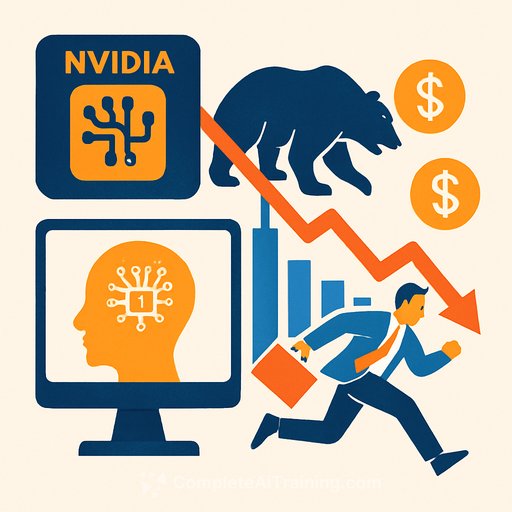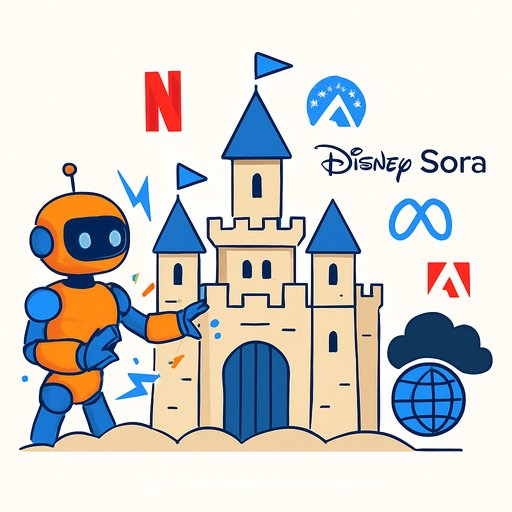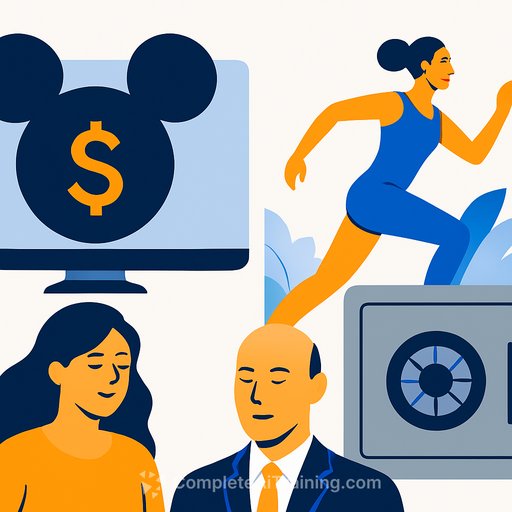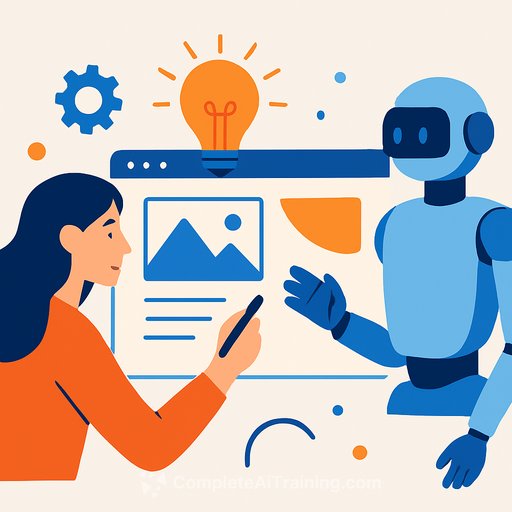Nvidia and AI Shake Up Markets Sooner Than Expected
Artificial intelligence is reshaping U.S. financial markets faster than many anticipated. Nvidia Corp., valued at nearly $4.5 trillion, leads as the most valuable company globally, while AI innovators like OpenAI and Anthropic have attracted tens of billions in funding. Investors are now bracing for major market shifts, similar in scale to the early internet days.
Many are adjusting their portfolios, moving away from companies vulnerable to AI-driven competition. The expectation is that demand for certain services and products will decline as AI becomes more widespread.
Companies at Risk from AI Disruption
Bank of America has flagged 26 companies as highly exposed to AI risks, including Wix.com, Shutterstock, and Adobe. Since mid-May, these firms have underperformed the S&P 500 by about 22 percentage points, despite tracking the market closely after ChatGPT’s launch in late 2022.
Daniel Newman, CEO of Futurum Group, notes that the disruption is happening much faster than expected—compressing what was thought to be a five-year transition into roughly two years. Service-based businesses with large workforces are especially vulnerable.
While no major companies have collapsed due solely to AI yet, software that can code, answer complex queries, and create images or videos is challenging traditional business models. Major firms like Microsoft and Meta are investing hundreds of billions into AI development, increasing competitive pressures.
Shares of Wix.com and Shutterstock have fallen more than 33% this year, contrasting with an 8.6% rise in the S&P 500. Adobe’s stock is down 23%, as investors worry that customers may increasingly rely on AI-generated imagery, exemplified by Coca-Cola’s recent AI-driven ad campaign.
The impact extends beyond creative fields. Gartner’s shares plunged 30% last week after lowering its revenue forecast. While the company cited U.S. policy changes, analysts see AI as a factor that could provide cheaper alternatives to its research services. Morgan Stanley called this update a boost to the AI disruption narrative, and Baird highlighted growing investor concerns about AI’s role.
AI’s Impact Is Not Uniform
History shows technology often disrupts established markets—from telegraphs replaced by phones to Blockbuster outpaced by Netflix. Adam Sarhan, CEO of 50 Park Investments, points out that any company relying on human labor for tasks AI can perform faster and cheaper faces risk. This includes areas like graphic design, administrative tasks, and data analysis.
Still, some companies are thriving. Duolingo, despite facing AI-powered translation competition, has doubled its share price in the past year and raised its 2025 revenue outlook, partly due to its own AI tools. However, questions remain about how long such growth can last.
The divide between market winners and laggards has widened in 2025. While low-cost AI products from China sparked concerns about U.S. dominance earlier this year, leading tech giants have instead ramped up spending. Microsoft, Meta, Alphabet, and Amazon plan to invest around $350 billion in capital this fiscal year—almost 50% more than last year—mostly to expand AI infrastructure. This surge benefits companies like Nvidia, whose processors power most AI systems.
Identifying Risk Is Complex
Determining which businesses face the greatest AI risks isn’t straightforward. Alphabet, a leader in AI, remains on Bank of America’s high-risk list, partly because it must protect its dominance in online search. Other cases are clearer: advertising firms Omnicom Group and WPP have fallen 15% and over 50%, respectively, amid reports that Meta intends to fully automate ad creation.
If you’re in a creative role, it’s crucial to stay informed about how AI might affect your industry and consider upskilling with AI tools that complement your work. Exploring AI courses can provide practical skills to stay competitive in this changing landscape. For tailored options, consider checking out Complete AI Training’s courses for creative professionals.
- Key Takeaways for Creatives:
- AI is accelerating change, impacting service-heavy businesses fast.
- Some creative roles face pressure from AI-driven alternatives.
- Companies that integrate AI tools effectively may still grow.
- Upskilling in AI technologies can help maintain your edge.
Staying ahead means understanding where AI can support your creative workflow rather than replace it. Embracing AI tools smartly will be essential as markets continue to adjust.
Your membership also unlocks:






